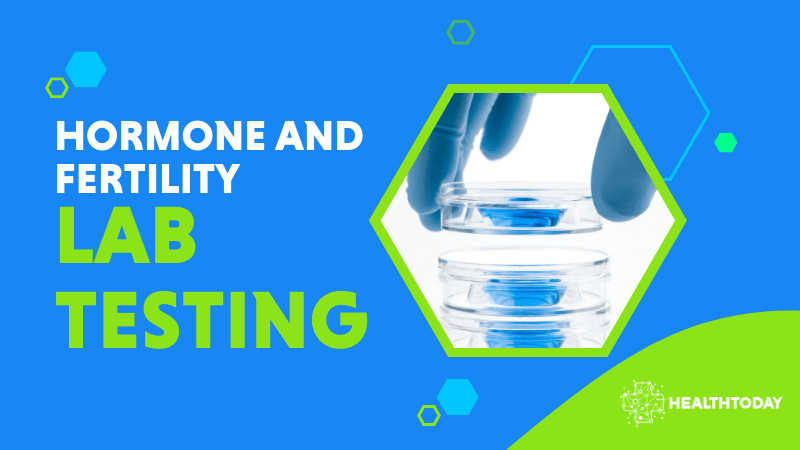
Your body's optimal functioning depends on the production of hormones, which act as biochemical messengers from your endocrine glands. These essential chemicals regulate various bodily functions such as metabolism, sleep, appetite, and mood, stimulate growth, modulate sexual and reproductive processes, and help prevent disease. However, imbalances in these vital biochemicals can cause chronic illness, dysfunction, pain, and emotional distress. At Health Today, we understand the importance of hormonal balance for overall health, wellness, and quality of life. That's why we offer a range of screening tools that provide insight into your hormonal balance and help protect you against life-altering events. With these screening tools, we aim to support our clients' overall health and well-being by promoting the early detection and management of hormonal imbalances.
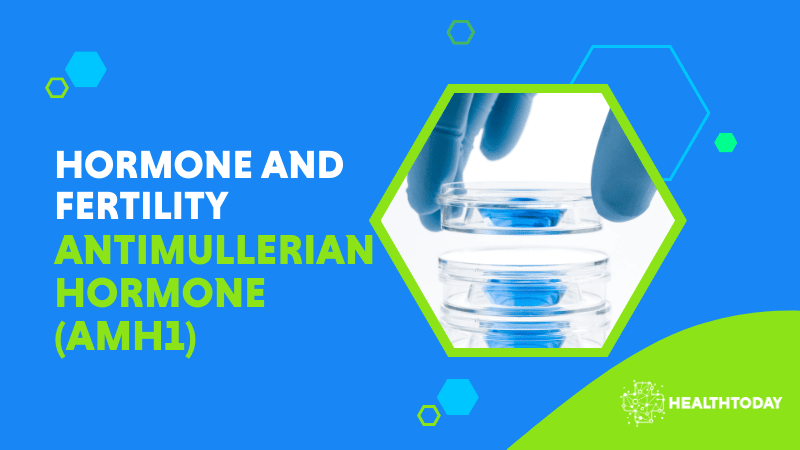
AMH1, or Antimullerian Hormone, S is a blood test that measures levels of a hormone called Antimullerian hormone (AMH) in both males and females. AMH is produced in reproductive tissues and plays a key role in the development of reproductive organs.
In females, this test helps determine ovarian reserves, assess ovarian response for infertility evaluation, and inform reproductive therapy treatments. It can also be used as a marker for polycystic ovary syndrome (PCOS). In males, AMH levels can be used to evaluate male infertility and sexual development disorders. The test is simple and provides valuable information to healthcare professionals.
Click here to view sample AMH1 screening Report:
Antimullerian Hormone, Serum (AMH1)
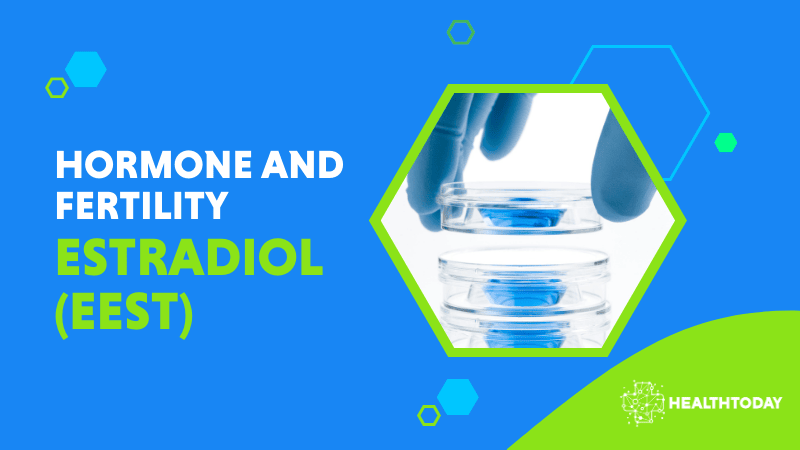
EEST, or Estradiol Mass Spectrometry, S is a straightforward blood test that measures the amount of estradiol in your blood. Estradiol is a form of estrogen hormone, which plays a crucial role in the development and function of the reproductive system. In females, estradiol is produced in the ovaries, breasts, and adrenal glands, and regulates the menstrual cycle, maintains bone health, and supports sexual development. In males, estradiol is produced in the adrenal glands and testes, and helps regulate sperm production and bone health.
Click here to view sample EEST screening Report:
Estradiol, Mass Spectrometry, S (EEST)
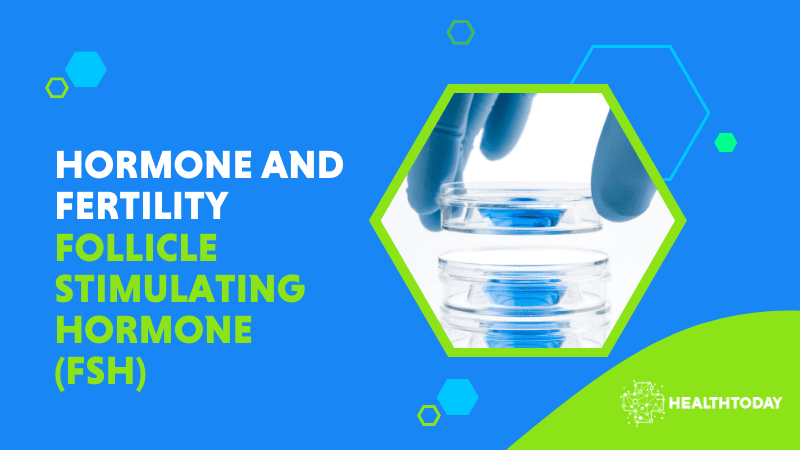
FSH, also called Follicle-Stimulating Hormone, is a blood test that measures the amount of this hormone in your blood. The pituitary gland produces FSH, which is crucial to sexual development and function. In females, FSH regulates the menstrual cycle and promotes egg development in the ovaries. It also signals the ovaries to produce estrogen during puberty. In males, FSH controls sperm production and signals the testes to produce testosterone during puberty.
Click here to view sample FSH screening Report:
Follicle-Stimulating Hormone (FSH)
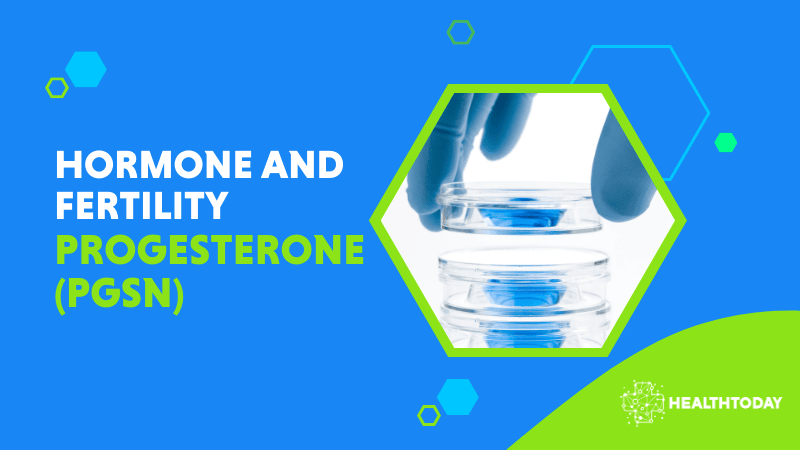
Progesterone screening (PGSN), also known as a simple blood test, measures the level of progesterone in the blood. In females, progesterone is produced in the ovaries, adrenal glands, and during pregnancy by the placenta. It plays an essential role in fertility and pregnancy by supporting the development of the uterine lining and regulating the menstrual cycle. In males, progesterone is produced in the testicles and adrenal glands and is a building block of testosterone. This screening is an easy way to assess progesterone levels in the blood.
Click here to view sample PGSN screening Report:
Progesterone (PGSN)
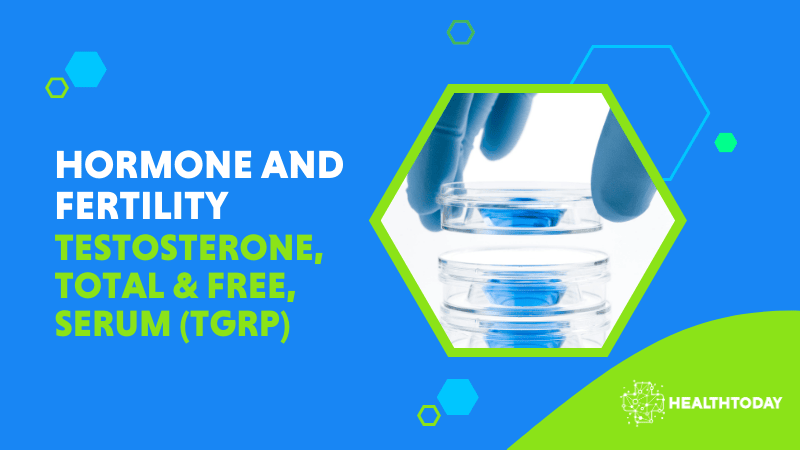
The Mayo Clinic Testosterone, Total & Free, Serum (TGRP) test is a blood test that measures the levels of both total and free testosterone in the blood. Testosterone is a male sex hormone that is important for the development of male physical characteristics and maintaining bone density, muscle mass, and libido. Total testosterone includes both bound and unbound testosterone, while free testosterone is not bound to proteins and is available for use by the body. The test is used to diagnose and monitor conditions related to testosterone imbalance, such as hypogonadism and infertility. The test is typically performed using a blood sample and is considered a safe and non-invasive diagnostic tool.
Click here to view sample TGRP screening Report:
Testosterone, Total & Free, Serum (TGRP)
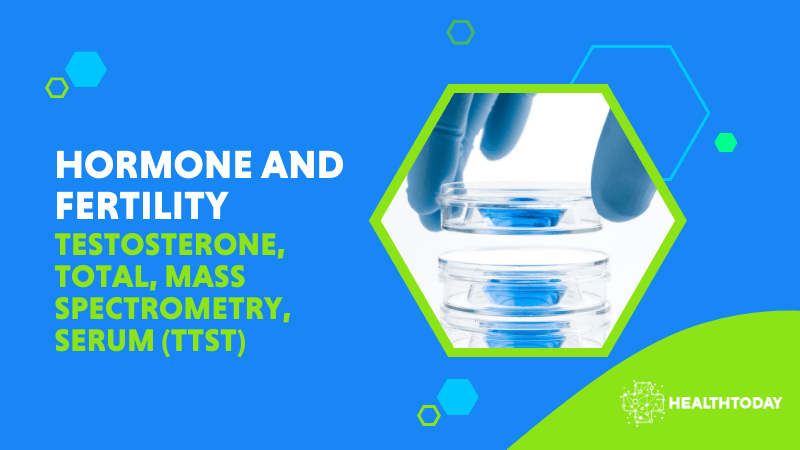
The TTST screening, also called Testosterone, Total, S, is a straightforward blood test that measures testosterone levels in both males and females. Testosterone is a hormone that's important for sexual development and function. In males, testosterone is produced in the testes and adrenal gland and helps regulate muscle mass, bone mass, libido, and the production of sperm and red blood cells. In females, testosterone is produced in the ovaries and adrenal gland and is converted into estrogen. It plays a role in libido, fertility, and bone, breast, menstrual, and vaginal health.
Click here to view sample TTST screening Report:
Total Testosterone Screening Test (TTST)
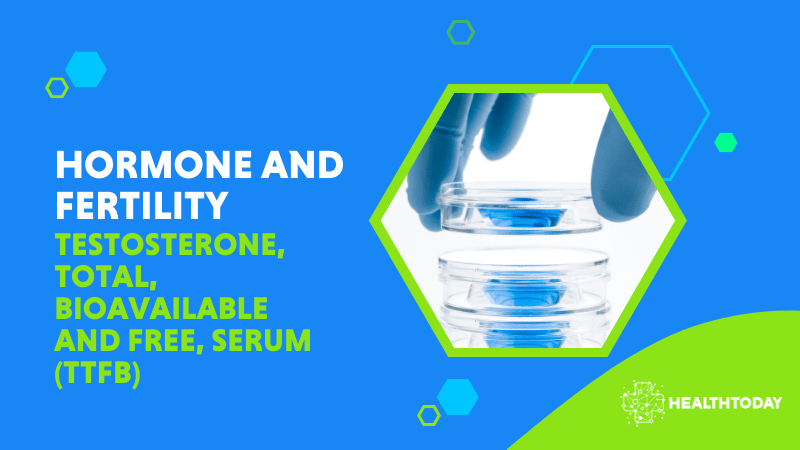
The Mayo Clinic Testosterone, Total, Bioavailable and Free, Serum (TTFB) test is a blood test that measures the level of testosterone in the blood. Testosterone is a male sex hormone that plays a key role in the development of male physical characteristics and is important for maintaining bone density, muscle mass, and libido. The test measures both total testosterone, which includes testosterone bound to proteins, and free testosterone, which is not bound and is available for use by the body. The test can also measure bioavailable testosterone, which includes both free and testosterone bound to albumin. The test is typically used to diagnose and monitor testosterone-related disorders, such as hypogonadism and infertility.
Click here to view sample TTFB screening Report:
Testosterone, Total, Bioavailable and Free, Serum (TTFB)
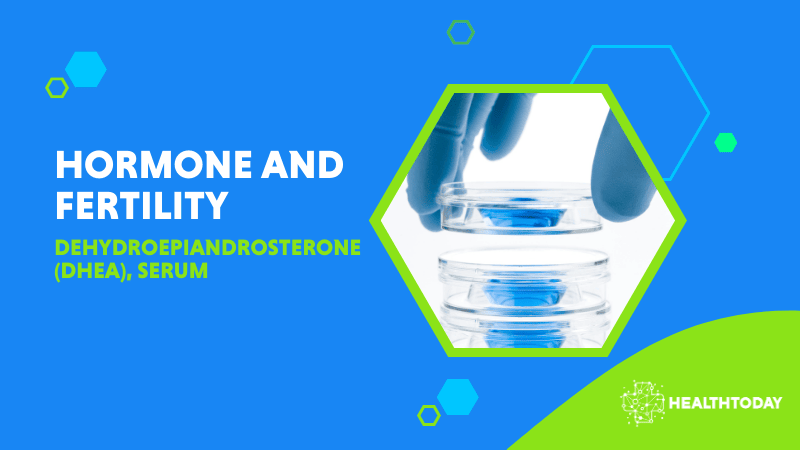
DHEA-sulfate (DHEAS) is a simple blood test that measures a male sex hormone present in both men and women. In males, it helps produce testosterone, and in females, it produces estrogen. During puberty, it plays a role in the development of male sexual characteristics. Abnormal DHEAS levels may indicate an issue with the adrenal glands or the sex organs (testicles or ovaries).
Click here to view sample DHEA screening Report:
Dehydroepiandrosterone (DHEA)
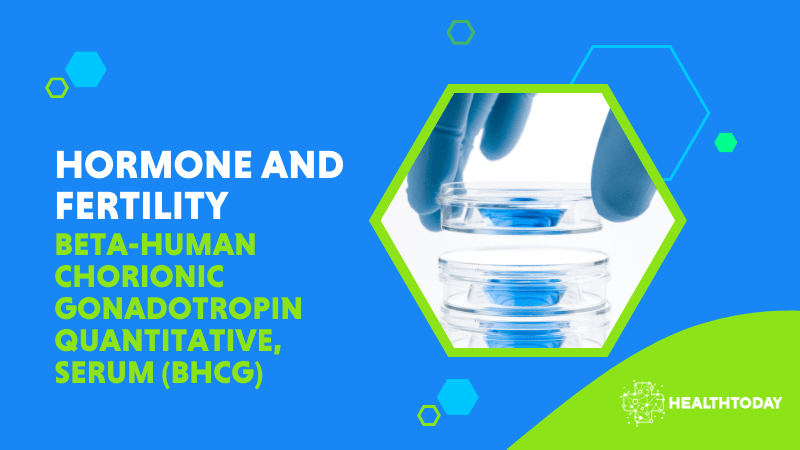
The Mayo Clinic Beta-Human Chorionic Gonadotropin Quantitative, Serum (BHCG) test is a blood test that measures the level of beta-human chorionic gonadotropin (beta-hCG) in the blood. Beta-hCG is a hormone produced by the placenta during pregnancy and can be detected in the blood as early as 11 days after conception. The test is used to confirm pregnancy and monitor the health of a pregnancy. Abnormal levels of beta-hCG can indicate a possible miscarriage or ectopic pregnancy. The test is typically performed using a blood sample and is considered a safe and non-invasive diagnostic tool.
Click here to view sample BHCG screening Report:
Beta-Human Chorionic Gonadotropin Quantitative, Serum (BHCG)
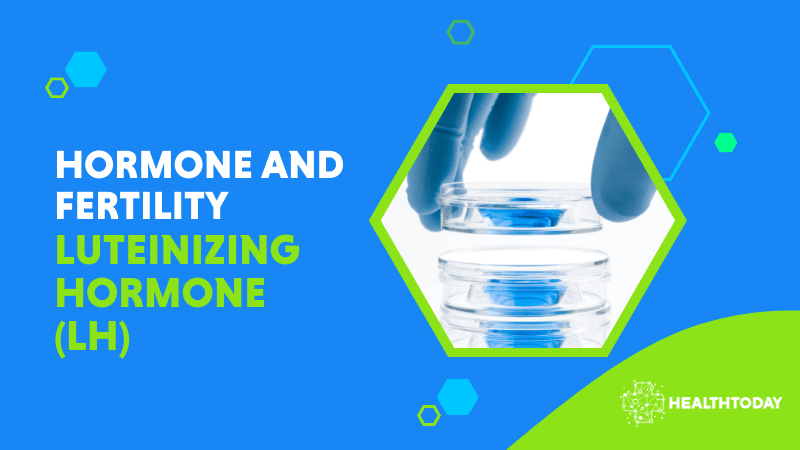
The Mayo Clinic Luteinizing Hormone (LH) test is a blood test that measures the level of LH in the blood. LH is a hormone produced by the pituitary gland that stimulates the production of sex hormones, such as testosterone and estrogen. The test is used to diagnose and monitor conditions related to sex hormone imbalance, such as infertility and polycystic ovary syndrome (PCOS). It can also be used to confirm menopause in women. The test is typically performed using a blood sample and is considered a safe and non-invasive diagnostic tool. Results can be used to guide further diagnostic testing and treatment decisions.
Click here to view sample LH screening Report:
Luteinizing Hormone (LH)
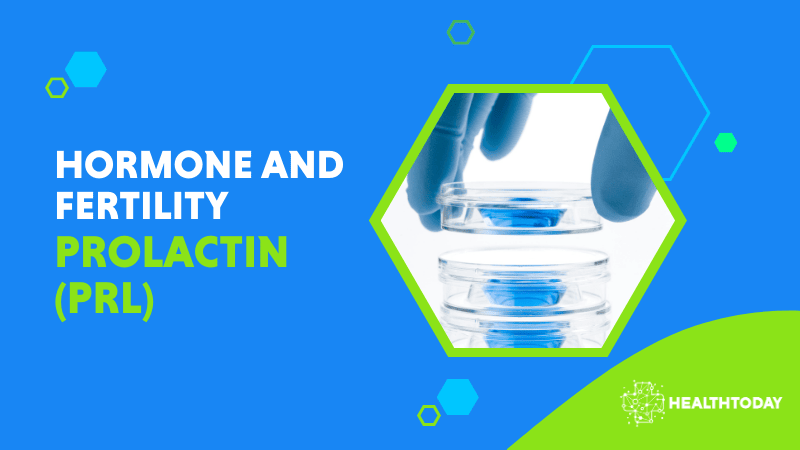
The Mayo Clinic Prolactin (PRL) test is a blood test that measures the level of prolactin in the blood. Prolactin is a hormone produced by the pituitary gland that plays a key role in lactation and breast development. Abnormal levels of prolactin can indicate a variety of conditions, including pituitary tumours, hypothyroidism, and polycystic ovary syndrome (PCOS). The test is typically used to diagnose and monitor conditions related to prolactin imbalance, such as hyperprolactinemia, which can cause infertility, irregular periods, and milk production in non-lactating individuals. The test is performed using a blood sample and is considered a safe and non-invasive diagnostic tool.
Click here to view sample PRL screening Report:
Prolactin (PRL)
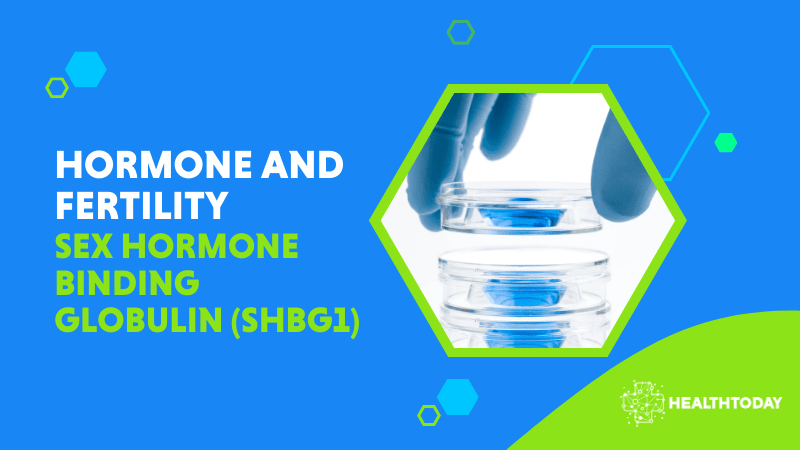
The Mayo Clinic Sex Hormone Binding Globulin (SHBG1) screen is a blood test that measures the level of sex hormone-binding globulin in the blood. Sex hormone binding globulin (SHBG) is a protein that binds to and transports sex hormones, such as testosterone and estrogen, in the bloodstream. The test is used to diagnose and monitor conditions related to sex hormone imbalance, such as hypogonadism and hirsutism. It can also be used to monitor the effectiveness of hormone replacement therapy. The test is typically performed using a blood sample and is considered a safe and non-invasive diagnostic tool. Results can be used to guide further diagnostic testing and treatment decisions.
Click here to view sample SHBG1 screening Report:
Sex Hormone Binding Globulin (SHBG1)